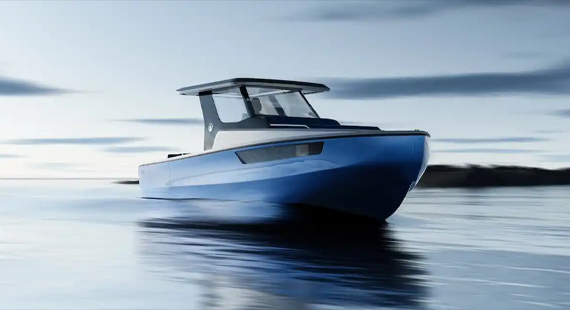PRODUCTS
Fiberglass boat manufacturing

Fiberglass boat manufacturing offers several advantages that have contributed to the popularity of fiberglass boats in the marine industry. Here are five key advantages:
1, Strength-to-Weight Ratio: Fiberglass composite materials have an excellent strength-to-weight ratio, meaning that they provide high structural strength while remaining relatively lightweight. This characteristic allows for the construction of strong and durable boats without adding unnecessary weight. As a result, fiberglass boats tend to be more fuel-efficient, faster, and easier to handle compared to some heavier alternatives.
2, Corrosion Resistance: Fiberglass is inherently resistant to corrosion, which is a significant advantage in a marine environment where boats are constantly exposed to saltwater. Unlike metal boats that can corrode over time, fiberglass boats are not susceptible to rust, making them well-suited for saltwater applications. This corrosion resistance contributes to the longevity and durability of fiberglass boats.
3, Design Flexibility: Fiberglass allows for greater design flexibility, enabling the creation of sleek and aerodynamic boat shapes. Manufacturers can mould fiberglass into various forms, allowing for streamlined hull designs that enhance performance and fuel efficiency. The flexibility in design also extends to the interior layout of the boat, providing versatility in accommodating different features and amenities.
4, Ease of Repair: Fiberglass boats are relatively easy to repair in the event of minor damage, such as scratches or dings. Repairing fiberglass involves patching and smoothing the affected area, and the repaired section can blend seamlessly with the rest of the boat. This ease of repair contributes to the overall cost-effectiveness and long-term maintenance of fiberglass boats.
5, Low Maintenance Requirements: Fiberglass boats typically have lower maintenance requirements compared to some other materials, such as wood. Fiberglass is resistant to rot, mildew, and pests, reducing the need for frequent inspections and treatments. The smooth, non-porous surface of fiberglass is also easy to clean, requiring minimal effort to maintain the boat's appearance and structural integrity. Overall, the combination of strength, corrosion resistance, design flexibility, ease of repair, and low maintenance makes fiberglass an advantageous material for boat manufacturing.
